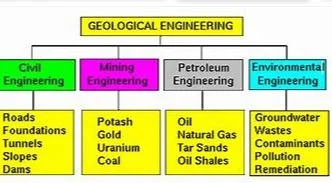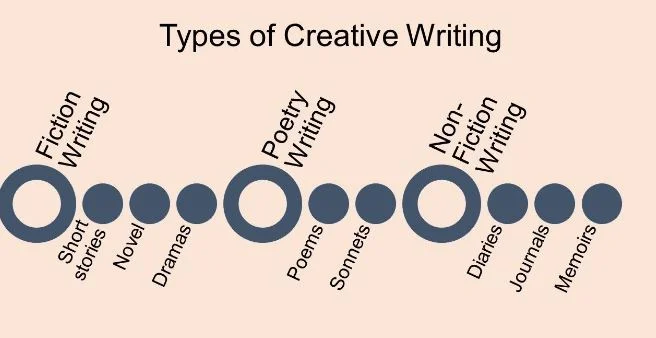21 Hardest and 21 Easiest Courses in Colleges to Take in 2025

The words hard and easy vary among different people. You may consider a certain course easy and another student may find it very hard. Also, whether you find a course hard or easy may depend on whether you consider it enjoyable or not.
The criteria used in determining the hardness and easiness of the below courses are the time one can spend on research, the amount of grade point average in each course, and the classes one has to take.
People Also Read: Term paper Vs Essay Vs Research Paper: Is a term paper an essay
21 Hardest Courses
1. Chemistry

Chemistry mostly deals with developing new materials and understanding chemical processes. Its classes include calculus, general chemistry, physics, organic chemistry, inorganic chemistry, and biochemistry all of which are not easy.
A lot of time is spent on classwork and lab work.
2. Architecture
Architecture majors study maths, physics, art, engineering principles, and computer science. The combination of these classes and the long hours spent drawing makes this a hard course
3. Chemical Engineering
This course combines hard majors such as mathematics, biology, physics, chemistry, thermodynamics, economics, and heat transfer. On top of that, there is a lot of fieldwork and lab experiments to be done.
4. Computer science
Computer science majors spend a lot of time troubleshooting and problem-solving rather than learning a specific curriculum. Coursework in computer science includes discrete structures, algorithms, computer architecture, and programming courses. This combination takes a lot of time to learn making this course hard to crack.
5. Aerospace Engineering

This course covers aeronautical engineering and astronautical engineering. Advanced math and hard sciences make it hard.
Some of the classes taken include matrix dynamics, circuits, thermodynamics, magnetism, chemistry, and physics.
6. Biomedical Engineering
This course is hard because of the extensive courses in biomedical sciences that cover everything in cellular dynamics and biomaterials. Also, a lot of research and experiments are required in this course
7. Materials Engineering
The focus of this course is on the design and discovery of materials. Other than math and basic sciences, materials engineering requires special courses such as process design, mechanical behavior, and structural dynamics.
8. Petroleum Engineering
This field is specific to oil and gas. The classes required in this course are geology, statistics, calculus, chemistry, and physics. A lot of classwork and fieldwork are also needed.
9. Cell and Molecular Biology
This focuses on molecular principles and cellular systems. A complete understanding of biochemistry, calculus, organic chemistry, and a lot of lab work is required in this course. The laboratory and molecular focus are what make this course challenging.
10. Astronomy

To understand the whole universe as a whole you have to study electricity and magnetism, quantum mechanics, calculus, physics, and thermodynamics.
Understanding outer space which is filled with mysteries makes this course hard.
11. Physics
Understanding matter and the universe sounds easy but physics has a lot of course load. You will have to study optics, quantum mechanics, relativity, and differential equations. On top of that, you will have to cope with a lot of lab experiments
12. Mechanical Engineering
This course is very broad. It combines material science, math, and physics, and concentrates on manufacturing, problem-solving, and design. Also, it involves thermodynamics and fluid dynamics
13. Biochemistry
This is a subfield of biology that focuses on the cellular parts of living organisms. Molecular genetics, enzymes, and molecules are mostly focused on in this course.
14. Neuroscience
This is a study specifically on the human brain and nervous system. The coursework majors in neurobiology, psychology, and cognitive science. A lot of memorization is required in this course.
15. Biology
Biology studies a variety of sciences ranging from genetics, ecology, microbiology, and evolution. Also, a lot of lab experience is required in this course.
16. Mathematics
All mathematics majors require a lot of intense level of mathematical thinking. Classes taken in math include calculus, abstract and linear algebra, probability, and real analysis.
Math can be pure and theoretical or applied and computational. To boost your performance, you’ll need cheat websites for maths and other sciences.
17. Nursing
Nursing has a lot of study and work hours for students. The students spend a lot of time in the hospital like qualified nurses to know what it takes to be a nurse. The standards are high and one must pass to remain in the program.
18. Law
The law requires you to be a book warmer. You must be able to pick up vital information from masses of text. There is no shortcut. One has to understand the laws and legislature in different countries of the world to interpret them well in exams.
19. Geological Engineering

This course spans from forestry to hazard investigation to groundwater surveys.
Coursework includes a lot of fieldwork along with paleontology, paleoecology, mineralogy, and basic classes such as math and science.
20. Electrical Engineering
This is a very broad field. Graduates must be able to test and develop electric equipment. The coursework majors in robotics, circuits, thermodynamics, and communication systems.
21. Fine Arts
This sounds like an easy course but it is very hard. A lot of time is spent on acting, sculpting, painting, and printmaking classes.
People Also Read: Parts of an Essay Conclusion: How to Write a Good Conclusion Paragraph
21 Easiest Courses
1. Music
Pursuing music as a major requires one to specialize in applied music, music business, music performance, and more. Classes are taken on music theories, music history, and humanities
2. Business Administration
This deals with the fundamentals of business mechanics. It offers knowledge of operation and management. Maths are accounting classes involved are not intense
3. Marketing

In this course, students analyze market trends and develop marketing strategies.
Classes have to be taken on principles of finance, macroeconomics, marketing principles, and behavioral marketing.
4. International Business
In this students are taught different economic and legal aspects of different countries for them to take on the global stage. Classes have to be taken on accounting, business ethics, and accounting
5. Organizational Leadership
This course focuses on the individual and social aspects of a business or organization. Students are taught different techniques and strategies that are involved in helping employees solve conflicts and adapt to changes
6. Human Resource
This course focuses on problem-solving skills and critical thinking. Students explore employee relations and organizational behavioral theories. They are also introduced to areas of employee management
7. Public Relations
Through this course, students can disseminate and create information that can establish the image of a brand or organization. Classes that are attended in this course include media laws and ethics and public relations strategy and research.
8. Journalism
Involves gathering and disseminating information through finding the right sources, interviewing, creating, and editing content. Media laws and ethical practices are also learned.
9. Sociology
This involves the study of human behavior and relationships. Some of the courses covered in this course include social systems, race and ethnicity, political sociology, and social movements.
10. Religious Studies
This explores the nature of different religious systems. Students learn how to approach religious beliefs in a scholarly manner and are taught valuable skills such as critical thinking, writing, and analysis
11. History
In this course, past events are studied and interpreted based on recorded evidence and theories. Subjects in this course cover a wide range of historical subjects.
12. Early Childhood Education
This course prepares students to work with kindergarten and elementary school kids. The focus is usually on childhood learning and experiences.
13. Social Work
Social work seeks to make a difference in society. Skills obtained can be used in different settings such as schools, hospitals, government agencies, and NGOs. You can specialize in mental health, child welfare, family services, or addiction.
14. Education
Teaching is one of the most manageable degrees to obtain. It is an easy option where you major in your best subjects
15. Film studies
All you are supposed to do in this course is watch movies and analyze them.
16. Creative Writing

This is a course that you take if you want to be a blogger or like making up stories. It is all about developing your imagination and creativity
17. Physical education
Physical education is very easy. All you need is to learn a few theories and different exercise activities.
18. Basic psychology
All you have to grasp in this course is the human brain, behavior, and character.
People Also Read: Dissertation Length: Optimal Length in Words and Pages
19. Basic Anthropology
In this, you learn about social groups, civilization, and culture. It covers basic knowledge and does not require in-depth research.
20. Public speaking
It is a course for everyone afraid of public performances such as giving speeches. It is useful for everyday life and can help in self-confidence.
21. Foreign Language Introduction
This involves learning the basics of a foreign language to at least communicate with foreign people.

When not handling complex essays and academic writing tasks, Josh is busy advising students on how to pass assignments. In spare time, he loves playing football or walking with his dog around the park.




